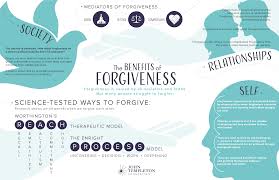Forgiveness as ontology of human survival.
Today we live in a world edging toward collapse under the weight of violence. Every day brings fresh images of conflict, leaving us helpless. While intra-state wars have declined, armed clashes worldwide are escalating. In 2025, despite repeated ceasefire efforts in the Ukraine-Russia and Hamas–Israel wars, drone warfare persists, fuelling deaths, geopolitical tension, economic strain, and eroding basic trust.
The looming threat of war undermines peace efforts and corrodes moral and humanitarian values. War and civil strife cannot be countered with more violence; only peace, non-violence, and dialogue can break the cycle. Resolving conflicts today requires seeking shared values. In a globalised, hyper-mobile, technologically driven world, it is no longer enough to merely “tolerate” differences — we must cherish them as natural and enriching. Against this backdrop, cultivating forgiveness from childhood has never been more critical. If world leaders focus only on retaliation, conflicts will never end. Forgiveness disrupts the cycle of revenge, fosters reconciliation, builds trust, and strengthens social cohesion. It promotes understanding and offers an alternative form of justice.
The Jain tradition highlights this power of forgiveness. During the annual Paryushana festival, Jains observe Kshamavani (Forgiveness Day) — this year on 8 September — when they say Micchhami Dukkadam, meaning “please forgive my deeds done knowingly or unknowingly.” Rooted in self-purification and spiritual evolution, this ritual encourages people to release grudges and move forward.
Seeking or granting forgiveness is an act of courage. We are all hurt, offended, or wronged at times — and we too hurt others, intentionally or not. The shared ritual of asking forgiveness removes hesitation and pride, replacing them with empathy and compassion. It eases anxiety and hostility while enhancing physical, mental, and spiritual well-being. Jainism sees forgiveness as “doubly blessed”: The forgiver feels lighter and gains self-esteem, while the forgiven feels relief and gratitude. It reflects the belief that every soul is inherently noble and that mistakes arise from ignorance, circumstance, or past karma. Making forgiveness a way of life affirms the sanctity of every being and our shared place in the cosmos. Forgiveness is one among many virtues — alongside humility, purity of thought, self-restraint, austerity, and contentment. It clears toxic emotions like anger, pride, greed, deceit, and ego, enabling harmonious relationships at personal, familial, and social levels. Such a practice is urgent in a world scarred by violence, self-centredness, and apathy. Today our mental and physical health faces constant threats: Not only from war and terrorism but also from environmental damage, religious extremism, rampant consumerism, and pandemics. These crises spare no one, rich or poor. The principle of forgiveness aims at not only an individual’s physical, mental, and spiritual well-being but also the sustainable socio-economic development at the societal level and peaceful co-existence at the global level.
Forgiveness under Jainism is unconditional, spontaneous, and emphatic, and not ‘self-oriented’. Although it is not easy to follow the principle of forgiveness in daily lives, it helps in understanding the multifaceted aspects of reality, cultivating objectivity and equanimity. It leads to higher spiritual growth and improved interpersonal, inter-group, and international relations.
